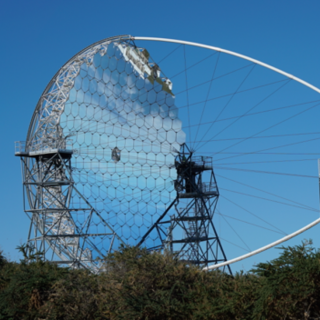Bibcode
MAGIC Collaboration; Acciari, V. A.; Ansoldi, S.; Antonelli, L. A.; Arbet Engels, A.; Baack, D.; Babić, A.; Banerjee, B.; Bangale, P.; Barres de Almeida, U.; Barrio, J. A.; Becerra González, J.; Bednarek, W.; Bernardini, E.; Berti, A.; Besenrieder, J.; Bhattacharyya, W.; Bigongiari, C.; Biland, A.; Blanch, O.; Bonnoli, G.; Carosi, R.; Ceribella, G.; Cikota, S.; Colak, S. M.; Colin, P.; Colombo, E.; Contreras, J. L.; Cortina, J.; Covino, S.; D'Elia, V.; da Vela, P.; Dazzi, F.; de Angelis, A.; de Lotto, B.; Delfino, M.; Delgado, J.; di Pierro, F.; Do Souto Espiñera, E.; Domínguez, A.; Dominis Prester, D.; Dorner, D.; Doro, M.; Einecke, S.; Elsaesser, D.; Fallah Ramazani, V.; Fattorini, A.; Fernández-Barral, A.; Ferrara, G.; Fidalgo, D.; Foffano, L.; Fonseca, M. V.; Font, L.; Fruck, C.; Galindo, D.; Gallozzi, S.; García López, R. J.; Garczarczyk, M.; Gaug, M.; Giammaria, P.; Godinović, N.; Guberman, D.; Hadasch, D.; Hahn, A.; Hassan, T.; Herrera, J.; Hoang, J.; Hrupec, D.; Inoue, S.; Ishio, K.; Iwamura, Y.; Kubo, H.; Kushida, J.; Kuveždić, D.; Lamastra, A.; Lelas, D.; Leone, F.; Lindfors, E.; Lombardi, S.; Longo, F.; López, M.; López-Oramas, A.; Maggio, C.; Majumdar, P.; Makariev, M.; Maneva, G.; Manganaro, M.; Mannheim, K.; Maraschi, L.; Mariotti, M.; Martínez, M.; Masuda, S.; Mazin, D.; Minev, M.; Miranda, J. M.; Mirzoyan, R.; Molina, E.; Moralejo, A.; Moreno, V.; Moretti, E. et al.
Bibliographical reference
Astronomy and Astrophysics, Volume 623, id.A175, 14 pp.
Advertised on:
3
2019
Journal
Citations
34
Refereed citations
32
Description
The mechanisms producing fast variability of the γ-ray emission in
active galactic nuclei (AGNs) are under debate. The MAGIC telescopes
detected a fast, very-high-energy (VHE, E > 100 GeV) γ-ray
flare from BL Lacertae on 2015 June 15. The flare had a maximum flux of
(1.5 ± 0.3) × 10-10 photons cm-2
s-1 and halving time of 26 ± 8 min. The MAGIC
observations were triggered by a high state in the optical and
high-energy (HE, E > 100 MeV) γ-ray bands. In this paper we
present the MAGIC VHE γ-ray data together with multi-wavelength
data from radio, optical, X-rays, and HE γ rays from 2015 May 1 to
July 31. Well-sampled multi-wavelength data allow us to study the
variability in detail and compare it to the other epochs when fast, VHE
γ-ray flares have been detected from this source. Interestingly,
we find that the behaviour in radio, optical, X-rays, and HE
γ-rays is very similar to two other observed VHE γ-ray
flares. In particular, also during this flare there was an indication of
rotation of the optical polarization angle and of activity at the 43 GHz
core. These repeating patterns indicate a connection between the three
events. We also test modelling of the spectral energy distribution based
on constraints from the light curves and VLBA observations, with two
different geometrical setups of two-zone inverse Compton models. In
addition we model the γ-ray data with the star-jet interaction
model. We find that all of the tested emission models are compatible
with the fast VHE γ-ray flare, but all have some tension with the
multi-wavelength observations.
MAGIC and multiwavelength data are only available at the CDS via
anonymous ftp to http://cdsarc.u-strasbg.fr
(ftp://130.79.128.5) or via http://cdsarc.u-strasbg.fr/viz-bin/qcat?J/A+A/623/A175
Related projects

Particle Astrophysics
The members of the Particle Astrophysics Group of the IAC participate actively in three large international collaborations of high-energy astrophysics: AMS-02 (Alpha Magnetic Spectrometer), the Cherenkov radiation telescopes MAGIC I and II and the Cherenkov Telescope Array Observatory ( CTAO). We also participate in the ASTRI mini-array, the gamma
Mónica Luisa
Vázquez Acosta